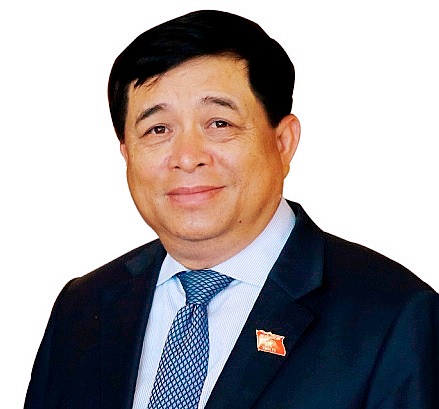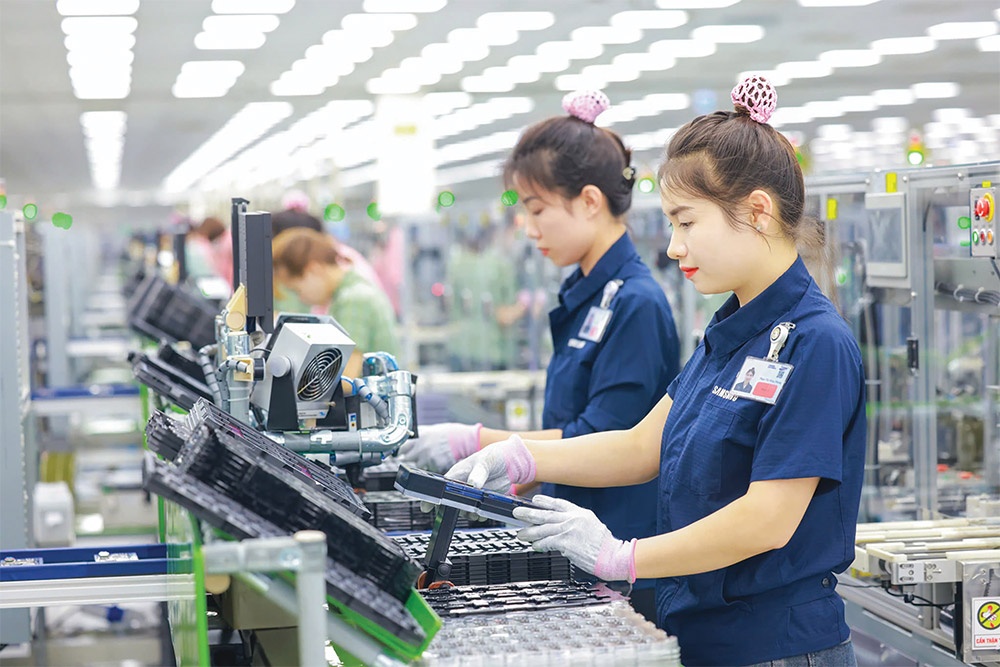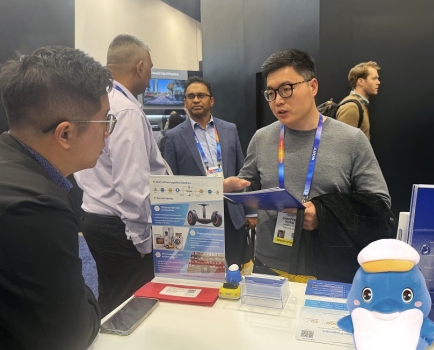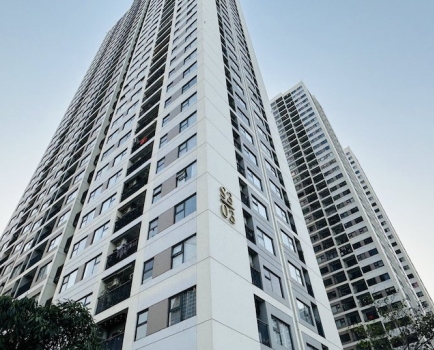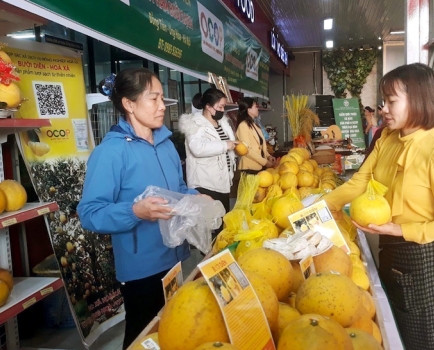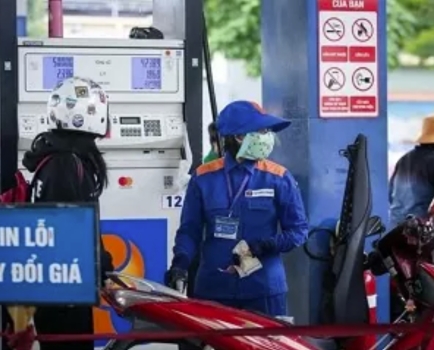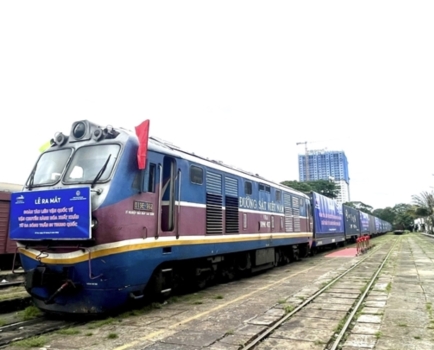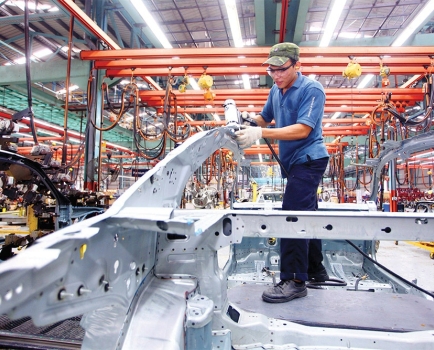Opportunities must be seized in meaningful year
Fri, 03 Jan 2025 13:54:00 | Print | Email Share:
The planning and investment sector has been making great contributions to the country’s economic growth, supported by improvements in the business and investment climate. Minister of Planning and Investment Nguyen Chi Dung highlights the sector’s accomplishments and plans.
It was a year of acceleration in 2024, with special significance in implementing socioeconomic development plans for this decade, resolutions of the 13th National Party Congress and National Assembly, and conclusions of the Party Central Committee and Politburo.
| Minister of Planning and Investment Nguyen Chi Dung |
The country started the plan amid a world evolving rapidly and unpredictably. Many risk factors and new developments arise beyond the forecasting capabilities of countries and international organisations. Conflicts and tensions in the world continue to evolve, with the potential to spread. Political and social instability has escalated in some regions.
The world economy is recovering slowly and unsteadily, and also faces many risks. The world’s financial, monetary, gold, oil, raw material, commodity, and transportation markets are volatile. Natural disasters, storms, floods, droughts, climate change, and epidemics are developing in complex fashion, severely affecting many countries. Traditional and non-traditional security issues, energy security, food security, and cybersecurity are becoming more complex.
Although there are more difficulties than advantages, our country’s economy has shown a strong recovery, achieving many positive results, with each quarter reporting better than the previous one. The estimated economic growth rate for the whole year is about 6.8-7 per cent, exceeding the target, leaving us among the few countries with high growth worldwide, and widely appreciated by international organisations.
The macroeconomy remains stable, inflation is under control, major balances of the economy are ensured, and business and investor confidence is strengthened. Vietnam continues to be a bright spot in the not-so-bright picture of the global economy.
National prosperity
At the start of 2024, the Ministry of Planning and Investment (MPI) built tasks and solutions to carry out the aforementioned plans and state budget estimates.
Based on this implementation from ministries as well as central and local agencies, the MPI developed a report on the results and that of the socioeconomic situation every month and quarter for regular governmental meetings. This was an important basis for the government to issue regular resolutions at all levels of government.
The MPI this year proposed new policies on macroeconomic stability, controlling inflation, economic growth, production and business, infrastructure, high-quality human resources, sci-tech and innovation, and developing new industries, such as semiconductor manufacturing.
The ministry has monitored and analysed socioeconomic development, reporting emerging issues of the economy, and forecasting and raising tasks of each ministry and agency. The MPI advises the government and the prime minister to strongly direct reform and innovation at all levels.
The year 2025 is meaningful as the final year of implementing the five-year SocioEconomic Development Plan, as a foundation for growth and socioeconomic development towards 2030. The MPI has drafted a government resolution on the main tasks and solutions to carry out the plan and the state budget estimates for 2025, with 12 main groups of tasks and solutions.
Development towards the end of the decade needs a strategic, long-term vision and mindset, creating and making breakthroughs in development. This means maintaining stability, grasping opportunities, overcoming challenges, and developing the country rapidly and sustainably.
It is necessary to carry out decentralisation, remove bottlenecks, and release all resources to accelerate national development. The MPI has pointed out 10 main groups of tasks and solutions for 2026-2030 to achieve the 10-year strategic goal of developing a country with modern industry and high-middle income, while bringing the country into a new era of development.
The MPI has also made efforts to improve the business investment environment, develop enterprises, and business households, as well as develop a collective economy, cooperatives, and innovation.
The business investment environment is an important pillar, creating conditions for enterprises and all economic sectors to thrive, and enhancing national competitiveness is also important. The MPI advised on Resolution No.02/NQ-CP on improving the business investment environment, enhancing national competitiveness, increasing newly established enterprises, reducing enterprises suspending operations, and reducing input and legal compliance costs.
It also covers cutting down policy risks, strengthening confidence, creating a fulcrum for recovery, and enhancing business resilience.
| Vietnam is striving to build a team of engineers and experts for tech-led growth, Photo: SamSung |
Outstanding growth
In the new development of sustainable business, in 2024, the MPI mobilised resources from international organisations to support businesses in applying green, circular, and inclusive business models.
Three toolkits were built to measure readiness to apply circular economy principles, environmental, social, and governance (ESG), and inclusive business. Activities were carried out to raise awareness of sustainable business, alongside technical support for about 4,000 enterprises. An impact business consulting network has been built with more than 100 members, and the ESG Vietnam Initiative was implemented with 400 enterprises participating over the last two years.
The MPI has been coordinating with organisations to carry out policies supporting enterprises in digital transformation according to the Law on Supporting Small- and Medium-sized Enterprises (SMEs), as well as mobilising international resources to implement direct training for over 14,000 enterprises from state budget sources and international organisations, as well as from counterpart funds of enterprises.
Several three-day intensive training courses for enterprises in tourism, agriculture, and industry were also carried out across the nation. In-depth consulting was delivered to around 450 enterprises to build a digital transformation roadmap, and support the application of innovative technology among enterprises.
Amid many difficulties for such enterprises, the SME Development Fund reduced the lending rate by 0.2 per cent additionally, so the short-term lending rate is about 1.2 per cent per year, with a medium and long-term lending rate at 4.4 per cent. So far, nine commercial banks have signed cooperation agreements with the fund in indirect lending activities.
Elsewhere, Vietnam is emerging as a potential key player in the semiconductor industry with many advantages such as strategic location, increasingly developed digital infrastructure, people proficient in technology and a young, creative workforce.
Seizing that opportunity, Vietnam has been gradually improving its business policies and laws to create better conditions for investors, carrying out solutions to support Vietnamese enterprises to participate more deeply in the global supply chain.
2024 also marked the first time that an MPI minister made a working trip and worked with leading semiconductor corporations in the United States to seek cooperation and specific solutions in five areas: building a semiconductor industrial ecosystem; cooperation on energy and key minerals; partnerships within the business environment; promoting the attraction of high-quality strategic exports; and cooperation on key IT infrastructure and cybersecurity.
In December, US semiconductor corporation Nvidia decided to build a research and development centre and an AI data centre in Vietnam. This is an important milestone in developing high-quality personnel in Vietnam, maximising the potential of AI to shape the future of technology, and realise the development goals of the nation.
In 2024, the MPI also coordinated with ministries and agencies to build a scheme on developing suitable personnel for the semiconductor industry to 2030 and beyond, and to train 50,000 engineers.
It also established the National Steering Committee for the development of the semiconductor industry; built preferential policies for the National Innovation Centre; commented on the draft of the Capital Law; proposed policies to remove issues related to public assets; and promoted the development of the microchip, semiconductor, and sci-tech industries.
By: Nguyen Chi Dung/ Vietnam Investment Review
Source: https://vir.com.vn/opportunities-must-be-seized-in-meaningful-year-120661.html
---------------------------------------------
Same category News :



